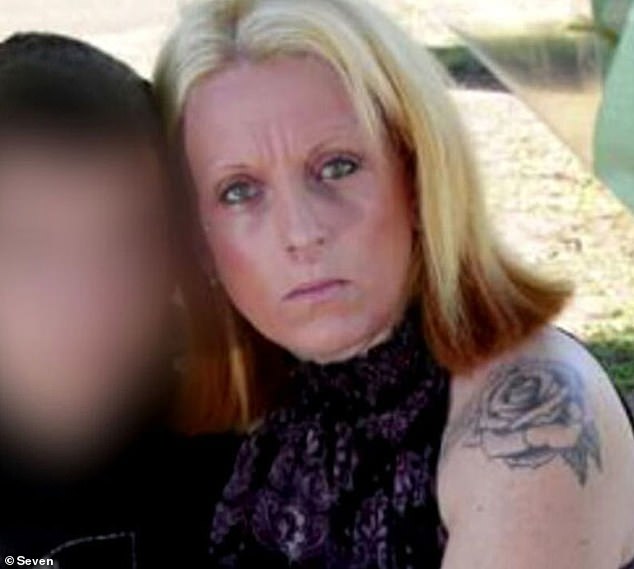Rebecca Payne suffered years of vile abuse before she fed her evil husband a poisoned biscuit and killed him. But was it murder?
A woman jailed after feeding her abusive husband drugged cookies before stuffing him in a chest freezer has asked a court to overturn her conviction.
Rebecca Payne was sentenced to 16 years in prison in June last year after a jury found her guilty of the murder of 68-year-old Noel Payne in the regional Victorian town of Walpeup on September 1, 2020.
During the trial, Payne had claimed that she did not intend to kill him when she gave him temazepam-spiced lemon cookies with a cup of Milo, only that she wanted to sedate him for a while.
Mr Payne’s body was discovered in the freezer three days later by a neighbour’s son after Payne asked for it to be temporarily stored on their property.
Imposing a sentence nine years less than the standard sentence for murder, Judge Rita Incerti said Noel Payne had inflicted years of depraved sexual, emotional and physical abuse on his wife.
“The abuse was insidious… You were trapped in an abusive, violent and cruel environment for over a decade,” she said.
“This is a case that calls loudly for the exercise of the discretion of mercy.”
Payne, now 44, appeared before the Court of Appeal on Friday as her lawyer Veronika Drago appealed both the murder conviction and her sentence.
The remains of Noel Payne (pictured) were discovered after the neighbor opened the chest freezer

Rebecca Payne (pictured) was convicted of her husband’s murder last year, but the judge said she had been ‘trapped in a violent, violent and cruel environment for over a decade’
Ms Drago argued the conviction was a miscarriage of justice, highlighting multiple factors in the complex and “extremely disturbing” process that she said led to an unsafe verdict.
These include the testimony of an intellectually disabled woman with an acquired brain injury. Noel Payne had moved in with them and was also abused.
Ms Drago said the woman had given three different statements about Mr Payne’s death and that a combination of her vulnerabilities and the overreach of the prosecution had ‘paralysed’ the defense.
“You get to a stage where the best evidence can be neutral and the impact of unfair prejudice is so great,” she said.
‘The question must be asked what chance Rebecca Payne, the applicant, had of a fair trial.’
Ms. Drago also alleged that during their final speech to the jury, prosecutors argued about medical evidence they were not entitled to.
The court was told that Mr Payne’s cause of death could not be determined and that there was limited evidence about the amount of temazepam ingested.

Payne (photo) was sentenced to a minimum of ten years in prison in June 2023.

The court heard that Noel Payne (pictured) had forced Rebecca to have his name tattooed on her body 18 times
Ms Drago appealed the sentence imposed, saying she could not make any specific sentencing error, but arguing her client should have been given more mercy.
“There were images and videos depicting what could only be described as an absolute house of horrors,” she said.
“The sentencing remarks show how depraved and degrading the behavior was that took place in that house… it was completely unbelievable at times, but there was clear corroborating evidence.”
In response, Sally Flynn SC said it was the Crown’s position that there had been no unfair prejudice against Payne.
She said it was not accepted that the witness had given different statements, and argued that while there were ‘internal contradictions’ it was rightly left to the jury to determine her credibility and reliability.
Ms Flynn disputed that the prosecution had exaggerated the medical evidence, reading transcripts and arguing that this was the prosecution making submissions to the jury about what they should find.

Payne (pictured) is appealing both the conviction and sentence and is currently not eligible for parole until 2030
Erik Dobe, also for the Crown, argued that Judge Incerti had already shown Payne significant mercy by imposing a sentence 33 percent lower than the standard sentence and a longer parole period.
“Her Honor was the one who personally heard and saw that evidence and was best placed to reach a conclusion as to the extent of the impact it should have,” he said.
The court was told there was a partial defense of provocation to a murder charge, which could have seen the offense reduced to manslaughter until 2005, when it was repealed by Parliament.
Judge Terry Forrest said in reading the evidence he believed a jury could have returned a “10-minute verdict” on provocation.
Judges Forrest, Stephen McLeish and Stephen Kaye deferred their decision on the appeal until a later date.
Payne will be eligible for parole in September 2030 after serving 10 years of her sentence.
